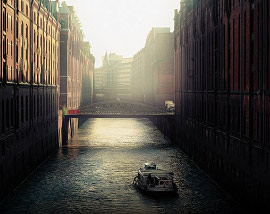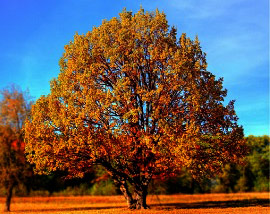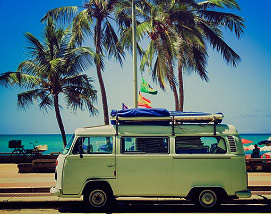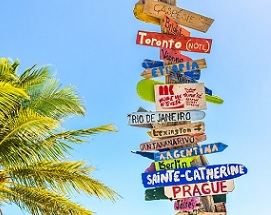It wouldn’t be an exaggeration if Mussoorie were called a resort hill-station. Its unparalleled aesthetics in the lap of nature and tourist-friendly infrastructure is a tantalising prospect for any traveller.
Mussoorie is situated on side slopes of Garhwal Himalayan Range in Dehradun district. It is surrounded by angel-white snow peaks lesser Himalaya to the northeast, Ganges to the east, Yamuna River to the west and has a stunning view of Doon Valley and the Shivalik Ranges in the south.
It is interesting to note that the name Mussoorie originates from the indigenous ‘mansoor’ shrubs that grow on the Himalayan terrain. It is also called the ‘Queen of Hills’ as no other hill-town offers such dramatic backdrops and quietude in one package.
Mussoorie is at an average elevation of 6,170 feet, the highest peak being Lal Tibba at 7,460 feet. The valleys between the lesser Himalayas and Shivaliks are called ‘duns/doons’.
Mussoorie is majorly dependent on spring fed streams and waterfalls for its water supply. Kolti Khala being the most prominent one. The calcareous and dolomite soils of Mussoorie are known for their dense forests. You’ll find open forests of Chir and Blue Pine on the western and eastern slopes of Mussoorie and Oak forests on the lower levels.
Doon valley has semi-temperate climate. Snowfall occurs on higher hills of Chakrata and Mussoorie, leaving the lower areas prone to long grey spells without the sunshine. According to Köppen Climate Classification, Mussoorie has a Subtropical Highland climate ‘Cwb’. It resembles the characteristics of coastal regions of ‘heavy summer monsoons’ despite being on a higher altitude. The salient feature of this meterological condition is diurnal temperature variation with a big difference between the high and low temperatures on the same day.
The altitudinal variation results in varied weather patterns in and around Mussoorie. The capital city of Dehradun receives excess rains in the months of July, August and September whereas Mussoorie has an average annual precipitation is 2206 mm. The summers in Dehradun are hot with the maximum temperature crossing 40 °C. In a delightful contrast, Mussoorie maintains an average of 21 °C throughout the peak season of March, April and May. Winters are not very severe. Fog, mist and occasional thunderstorms at night are common during this season.
Lt. Frederick Young, an officer in the British Indian Army is credited with seeing the vast potential that lay in the picturesque hills. He founded the town of Mussoorie and is believed to have planted the first tea and potato plants. The East India Company undertook the Great Trigonometric Survey of India with much fanfare in 1802. It was a project that hoped to measure the distances between various important places of the Indian sub-continent. Mussoorie was meant to be its northern terminus. This is the reason Colonel George Everest, Surveyor General of India in 1932, wanted an office here. The office was made in Dehradun eventually, but the Colonel lived in Mussoorie.
Tourism and agriculture form the bedrock of Mussoorie’s economy. The local population of over 30,000 people is engaged in alternative and entrepreneurial means of livelihood. Garhwali is the main language of the region but Hindi, Kumaoni and English are well received as well. Mussoorie’s British Colonial history has had quite an effect on its socio-economic structure. You can experience it when you visit Landour. Garhwali, Kumaoni and Tibetan are the main resident ethnic groups. They are known to be closely associated with eco-conservation movements. Their Chipko protests for saving trees and against limestone mining have received recognition from the UN Environment Programme.
It is as if someone collected the best picnic spots of all kinds and decided to call it a town named Mussoorie. Cascading waterfalls, rivers flowing in natural caves, mesmerising lakes, oak and pine forests, softest snow, enchanting wilderness, a treasure house of rare wildlife, spellbinding architecture and wafting clouds at your fingertips – you name it and Mussoorie Tourism lets you experience that facet. Make sure your Mussoorie tour covers the following hotspots to the maximum.
- Kempty Falls, Mossy Falls, Jharipani Falls
- Lake Mist
- Forest research Institite, Dehradun
- Shopping at Library Bazaar, Kurli Bazaar, Landour Market, Gandhi Chowk
- Treks to Nag Tibba, Camel’s Back Road, Har ki Dun, Cloud’s End
- Mussoorie Adventure Park
- Benog Wildlife Sancturary
- Idyllics Cafés of Landour
- Mussoorie Heritage Centre
- Municipal Gardens, K Dev Bhhoomi Wax Museum
- Happy Valley
Aloo jhol (potatoes in gravy) is a preparation that can render your Mussoorie tour incomplete if you haven’t tasted it yet. Pahadi cuisine is famous for its culinary magic. The secret rests in handpicked seasonal ingredients and slow cooking in forged-iron utensils. You can find almost all cuisines that you crave for in Mussoorie. The vegetarian platters and options will be more readily available, but specialty restaurants serve non-vegetarian dishes that will have you coming back for more.
Mussoorie tourism is a kaleidoscope of vibrant celebrations. The Mussoorie Municipal Board organises Summer and Autumn Festivals where art, sports, dance, music, seminars and joyous parades are organised. Join in the merrymaking and you can learn a few steps of the folk Jadda, Thali or Jhainta dances. Basant Panchami, Uttarani, Bikhauti, Losar, New Year, Hariyali and Phooldeli are some of the other important events and festivals of Mussoorie.
Discover more of Mussoorie in the truest sense. Share your travel related queries with us at SOTC on Twitter and Facebook or call us for more information regarding Mussoorie Tour Packages and other Uttarakhand Tour Packages.









